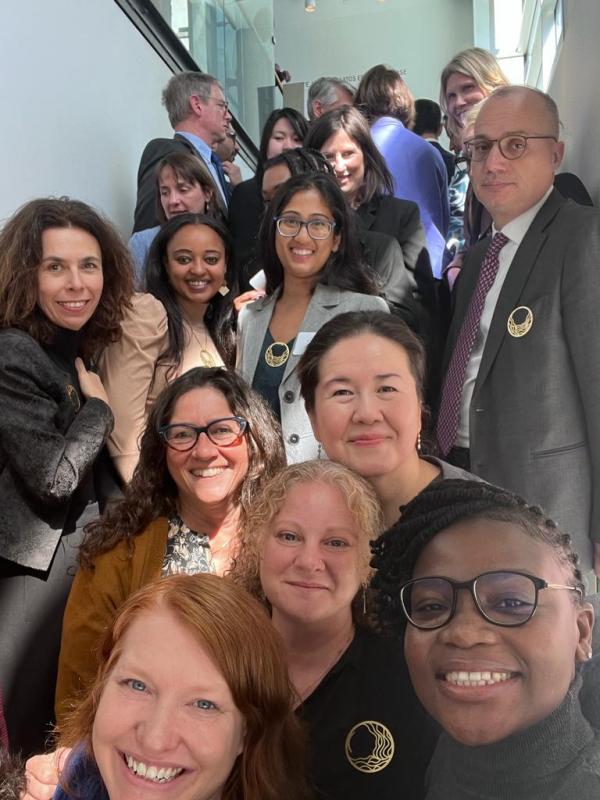Women in Water Diplomacy Network Reports on Progress
24 May 2023 by The Water Diplomat

In April, the Women in Water Diplomacy Network (WWDN) published its 2023 After Action Report which reviews the activities of both its Water Diplomacy Symposium as well as the network’s engagement in the UN 2023 Water Conference. Following the expression in 2022 of its strategic objectives for the period 2022-2017, the WWDN embarked on the implementation of its five point strategy to improve gender equality in high-level decision making in transboundary basins. The strategy is rooted in women’s leadership in regional dialogues around shared waters, with an overall focus on achieving positive outcomes for implications for regional peace and human security.
In the run up to the UN 2023 Water Conference, the WWDN organised a pre-conference Water Diplomacy Symposium to create space for and enable consultations within the network so as to exchange information on critical themes related to transboundary basins globally, and water insecure and conflict sensitive basins in particular. Beyond this, the symposium sought to particularly elevate voices of women water diplomats. At a symbolic level, the network members wore a collaboratively designed gold ‘clip’ throughout the UN Water Conference to bring collective positive visibility to the cause of equal participation and influence of women in water related decision making. Some key leaders such as Linda Thomas Greenfield, US Ambassador to the United Nations, Phan Thi Thu Huong, representing indigenous communities in Vietnam, and Johanna Sumuvuori, State Secretary Ministry of Foreign Affairs of Finland, gave high visibility to this initiative.
From its origins as a women’s network in the Nile River Basin, the WWDN has expanded geographically in a short space of time to include women active in river basins in amongst others Central Asia, North and South America, and Southern Africa. During the UN 2023 Water Conference the WWDN held a side event entitled ‘Elevating Critical Voices in Water Diplomacy’ at which the WWDN presented its voluntary commitment to the Water Action Agenda. In essence, this commitment is to continue to build an inclusive network focused on women, water, peace and security and to foster dialogue across countries and regions around common challenges, shared experiences, and enhanced understanding.
In its After-Action report, the authors note that fostering inclusive dialogue and decision-making processes is challenging and requires targeted resources and dedicated staff to actively help remove barriers in support of broad participation of marginalized voices. They further note that the pursuance of broader alliances such as with youth and indigenous water leaders is particularly valuable and impactful for network members and the Network’s objectives. Thirdly, the authors underline that while engagement with high level processes such as the UN Water Conference is important, significant benefits for broader inclusion efforts can also be leveraged by supporting voices and actors long established in the water sector to create space for the next generation of water leaders.
